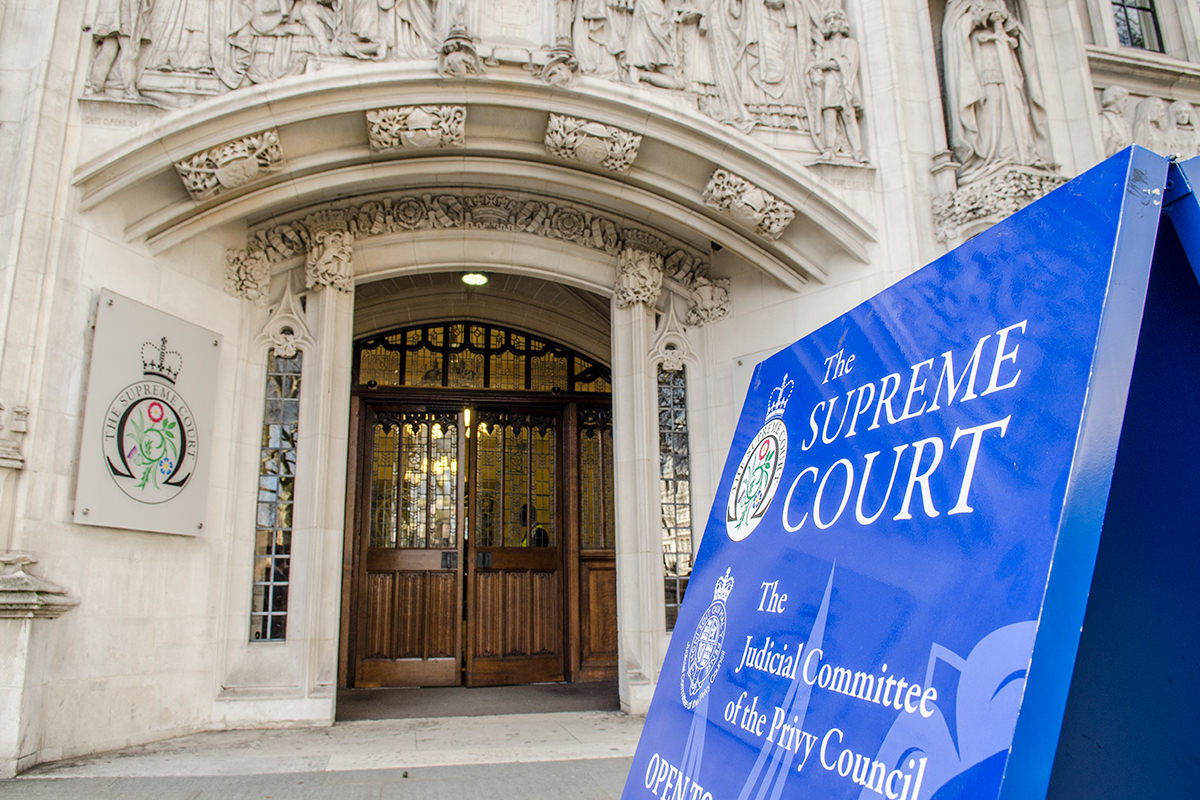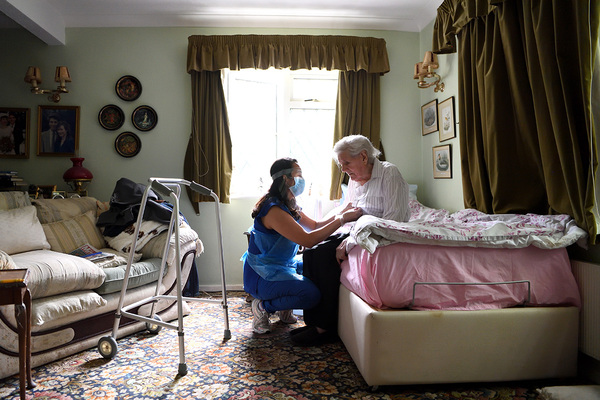You are viewing 1 of your 1 free articles
Supreme Court rules that sleep-in care workers are not owed millions in back pay
Social care staff are not entitled to hourly wages for sleep-in shifts, the Supreme Court has ruled, in a judgement that sees providers avoid massive potential back-pay bills.
Judges in the UK’s highest court concluded that the national minimum wage (NMW) does not apply to time expected to be spent sleeping overnight in a care receiver’s home by workers, bringing a marathon legal battle to an end.
Matthew Wort, partner at Anthony Collins Solicitors, which represented trade body Care England at the previous Court of Appeal hearing, said the decision “means UK care providers no longer face a potentially catastrophic financial outcome that could have jeopardised the care of thousands of people”.
Following a 2017 tribunal decision that care workers should be paid for every hour of a sleep-in shift rather than a flat rate, providers stood potentially liable for years of back-pay, previously estimated at £400m in total.
Unison, which reopened the case with an appeal to the Supreme Court after the tribunal decision was overturned by the Court of Appeal in 2018, said today’s ruling “is a huge blow for thousands across the country”.
The union vowed to push for a change in the law to make sleep-in shifts count as working time, adding that the judgement “increases pressure on the government to bring forward much-needed reform of the crisis-ridden sector”.
Delivering her judgement, the Supreme Court’s Lady Arden said sleep-in provisions in national minimum wage regulations from 1999 and 2015 mean that if the worker is permitted to sleep during a shift and only respond to emergencies, these hours are not included in the calculation of their pay.
She said: “The basic proposition is that they are not doing time work for the purposes of the NMW if they are not awake.
“However, the regulations go further than that and state that not only are they not doing time work if they are asleep: they are also not doing time work unless they are awake for the purposes of working.”
The case was initially brought forward by Clare Tomlinson-Blake against her then-employer, charity Mencap. Ms Tomlinson-Blake was required to “keep a listening ear out” while sleeping overnight during her job providing care for two vulnerable men in their home.
She was paid an allowance plus one hour’s pay at minimum wage for each night shift but claimed she should be entitled to arrears of wages for each hour she slept at work.
Reacting to the Supreme Court judgement, Ms Tomlinson-Blake said: “This case was never about the money.
“It was about the principle of treating staff fairly. Sleep-in shifts aren’t about just being on call – it’s work. Staff are constantly on guard to protect the most vulnerable in society.”
Ian Hudspeth, chair of the Local Government Association’s (LGA) Community Wellbeing Board, said: “This significant ruling is in line with councils’ and social care providers’ understanding of the law.
“Had the appeal been upheld, care providers and councils providing social care would have faced massive bills, which would have increased the huge financial pressures they are already facing.
“As we said in our submission to the court, the LGA strongly supports care workers being paid a fair wage for their valued work.”
Mr Wort said: “Today’s judgement puts an end to many years of uncertainty. It should be seen as a line in the sand, with the focus now on ensuring changes are made in how workers are remunerated to ensure appropriate pay for time asleep.”
Sign up for our care and support newsletter
Already have an account? Click here to manage your newsletters












